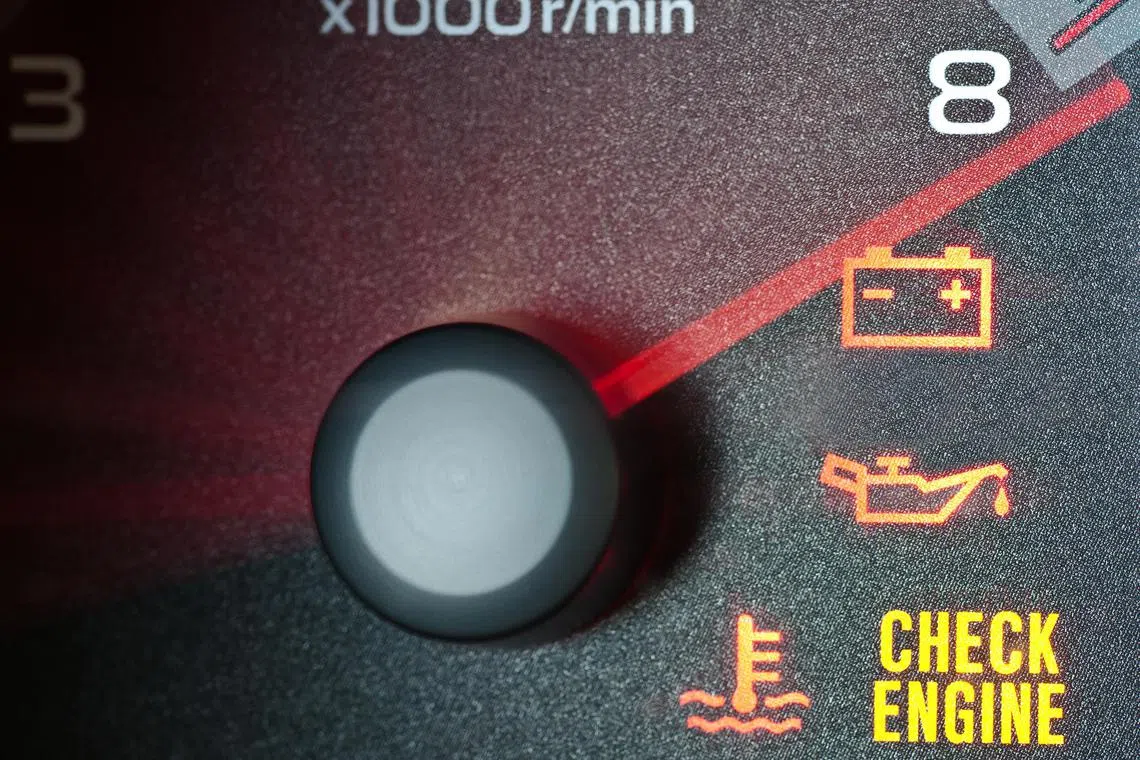Torque Shop: Low engine oil level may indicate a leak that is not noticeable
Sign up now: Get ST's newsletters delivered to your inbox

A frequent low engine oil warning may be a sign that there is a leak in the system.
PHOTO: NEWSPRESS
I have lately been receiving the “engine oil level” warning message. After checking for leaks around the engine or even at the tailpipes, I cannot find any signs of oil. Where is the oil disappearing to?
Although a small amount of oil is normally consumed by any internal combustion engine, a frequent low-level warning suggests the existence of an abnormal condition.
A leak, whether at the valve cover, timing chain cover or oil sump, for example, is not uncommon and often not noticeable. Sometimes, especially when it is a small leak, you may not even detect it on the ground after the car is parked overnight.
The best way to inspect for oil leaks is with a bright light from the top of the engine, under the bonnet and then from the bottom of the car when it is hoisted up at a motor workshop.
If no oil leaks are detected, then it is quite certain that there is a higher than normal oil consumption inside the engine. Although weak piston rings are the common cause of increased consumption, there are other possible reasons for oil being burned in the engine.
First, check what oil the engine was replenished with at the last service. There are many brands of engine oils available with very attractive sticker prices. When it comes to lubricant for cars, cheap always means low quality and, with such products, oil consumption may increase.
Assuming that the oil is of the manufacturer’s recommended grade and is not of inferior quality, then a compression test of each cylinder is needed to check the state of the piston rings. This is to find out if the engine is burning oil.
Other factors that lead to abnormal oil consumption are worn valve seals and a malfunctioning air-oil separator, both of which would be evident if you see a puff of smoke on cold start-up.
Finally, if your car has one or more turbochargers, check for smoke from the exhaust pipes when the engine is allowed to idle for more than a couple of minutes. This is usually an early sign of turbo oil-seal leakage. As these seals deteriorate, there will be more smoke from the exhaust, especially during acceleration.


